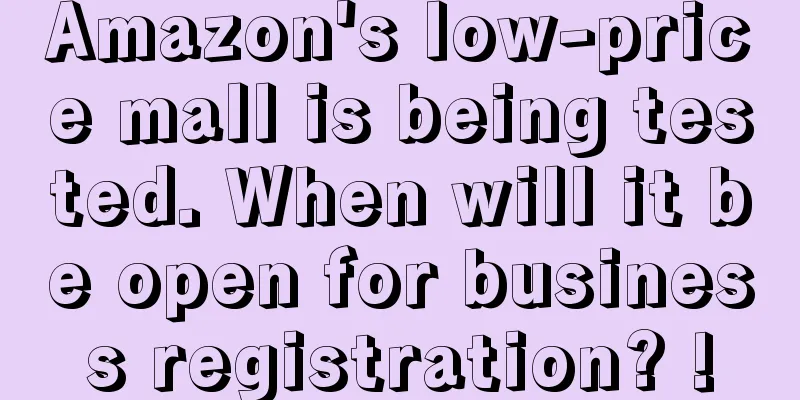With the advent of Japan’s tariff reversal algorithm, how much room for survival do sellers have?

|
Recently, many sellers have reported to the Japanese Customs that they are strictly investigating under-declarations, and sellers are facing huge tariffs. Many sellers even said that the taxes and fees are higher than the shipping costs, and the profits are directly negative after paying the tariffs. Nowadays, many logistics companies and freight forwarders have suspended the collection and delivery of goods received from Japanese FBA warehouses, and goods in transit are also facing delays. Under such circumstances, how much room for survival do sellers on the Japanese site have?
Many sellers said: It used to take 7 days to get through customs, but now it has been a month and they still haven't been able to get through customs. And they have to arrange for a warehouse first, and now customs is strictly checking, so the timeliness is really not guaranteed. ▲ The picture comes from the seller communication group Just at the beginning of June, there were sellers asking whether any of their goods on the Japanese site had been detained by customs. In fact, as early as April 10, a seller broke the news: Japan has exploded, and a lot of goods have been detained and stuck at the customs. All of them are cross-border e-commerce goods, all because of under-declaration. ▲ The picture comes from the seller communication group There are also sellers who said that the goods of most of the people they know were taken away, and those who smuggled goods to private addresses were suspected of forwarding them to Amazon and were also detained.
▲ The picture comes from the seller communication group The Japanese customs' strict inspection of under-declaration is not groundless. As early as April 3, a seller said that the logistics company asked him to provide additional information: 1. Provide the product’s ASIN/Amazon listing link/price. 2. The declaration must be based on 30% of the Amazon selling price. ▲ The picture comes from the seller communication group Later, a seller said that Japanese customs had recently conducted strict inspections and every ticket to Osaka would be inspected. Some sellers even said that the freight forwarder required them to declare 75% of the selling price! Declaring 25%-30% of the Amazon selling price is already a heavy burden for sellers. The 75% makes sellers ask: Who can afford to sell this? So who is to blame for the under-declaration? Some sellers speculate that the sellers themselves declare at a low price, and some unscrupulous freight forwarders declare to the customs at an even lower price to earn the difference, and then give the sellers a fake tax invoice. Earlier, there were reports that some local Japanese sellers complained that the Japanese Customs did not take action, allowing Chinese sellers to declare their products at low prices and enter the Japanese market, causing unfair market competition and leading to strict inspections by the Japanese Customs. Although the authenticity of the above situation is unknown, the strict inspection of under-declaration by customs does exist. In addition to the seller's goods being stuck at customs, it has also brought about a series of chain reactions.
After the seller revealed that the cross-border e-commerce goods were stuck at the Japanese customs and could not be released, some sellers directly asked: Is it because the Japanese FBA warehouse does not accept goods? Because I asked several freight forwarders, whether the logistics is sea or air transportation, they do not do the first leg of the FBA warehouse address . Commercial addresses can be delivered, but FBA warehouse addresses cannot. In fact, it is not that Japanese FBA warehouses are not accepting goods, but that many freight forwarders and logistics companies dare not accept goods. On April 13, a seller revealed that Shanghai’s largest China-Japan express line no longer accepts Amazon goods. The daily shipment volume was over 100 tons, but because the sellers under-declared, many goods were detained by Japanese customs. ▲ The picture comes from the seller communication group If the customs suspects that the goods are under-declared, the seller (importer) must provide two types of documentation: the commercial contract between the importer and the exporter, and the overseas payment certificate (payment receipt) before customs clearance and import into Japan are possible. The seller then analyzed why logistics companies would not accept the goods: "Because the Japanese tax bureau is investigating, the importers who are investigated will face up to 5 years of tax collection. It is the importers who will be collected, not the sellers. Amazon is an importer who uses freight forwarders, so freight forwarders dare not accept Amazon goods recently and are canceling importers." Previously, logistics companies that were still receiving goods also issued an announcement stating that the declared price adjustment must be 25% of the selling price↓↓↓ But now some logistics companies say: We dare not accept goods if the declared price is 35% lower than the selling price. And most logistics companies say that they do not accept goods by air at present, and only accept goods by sea.
▲ The picture comes from the seller communication group
A few days ago, some sellers reported to us that Japan’s declared tariffs on FBA goods from Chinese sellers are as high as 35% of the sales price, and some are even as outrageous as 55%. Is this a real regulation or is it a money-making trick used by logistics companies? Indeed, recently more and more Japanese sellers have complained that tariffs are more expensive than the value of the goods: Seller A: I shipped 900 products and the tax was over 10,000. When I first received it, I thought it was in Japanese Yen, but it turned out to be in RMB!!! Seller B: Tax for the first order was 80 yuan, and for the second order it was 2560 yuan, for the same goods and the same weight! Japanese customs are going crazy! Seller C: I shipped a total of 350 products in my last batch. A freight forwarder asked me to prepay more than 10,000 yuan in taxes. I was shocked and decided not to use him anymore. In a seller communication group, a seller said that the logistics company gave him a choice: pay 200,000 yuan in tax for customs clearance or pay 300,000 yuan in tax for destruction. However, the seller's goods are only worth more than 100,000 yuan... Many sellers who do not sell on the Japanese site are inevitably confused. Isn’t the price calculated based on the value of the goods? Even if it could be high, it wouldn’t be this high. In fact, this is not the case. Now the price declared to Japanese Customs needs to be calculated according to the reverse algorithm . ▲ The picture comes from the logistics group Some sellers explained the inverse algorithm: tax calculation mode - the inverse algorithm, no longer paying taxes based on the declared value based on the cost. Japan Air Freight FBA Tariffs are levied using a reverse calculation method, that is, taxes are no longer levied based on 30% of the purchase cost or selling price as the declared value. The taxable price for air-freighted FBA goods is calculated by selling price - listing fee - outbound fee = profit, and the profit is approximately 80%-92% as the taxable price. ▲ The picture comes from the logistics group According to this algorithm, the profit margin of the seller's goods is extremely low, which is why the seller's tax doubles for the same goods. Nowadays, most logistics companies have said that they no longer use air transportation, but only sea transportation. Japan Shipping FBA Cargo Starting from May 10th, Japan's shipping will cancel the fixed tax rate and start to split the tax bill normally, strictly following the channel requirements to declare the unit price not less than 30% of the link. Some logistics companies have given the algorithm for declaring prices: The declared price of a single product = [(Amazon product page price - FBA fees) / 1.1 (consumption tax) / (1 + tariff rate)] Product declared price = single product declared price * quantity of the product. ▲ The picture comes from the logistics group The above is the currently known information about the Japanese inverse algorithm. If there are any errors, please feel free to correct them. In fact, the Japanese Customs website has several methods to calculate the taxable price in sequence, and the reverse calculation method will be used when these methods cannot be used. However, an informed seller said: Under normal circumstances, FBA goods still have to go through the reverse calculation method, and other methods are difficult to apply. A logistics company told me before: Japan has been conducting a comprehensive census on the import of e-commerce goods since the outbreak. The previous strict inspection was just a spot check. If there is a problem, some taxes will be paid and it will pass. Now the Japanese customs is conducting a comprehensive census. Once it is found, it will be reversed. Therefore, we agents and customs clearance companies can only find ways to increase the declared value and pay more taxes in order to avoid being asked by the customs to reverse the calculation, because even if it is 35%, 45%, or 55%, it is still less than the actual tax to be paid. But now it seems that the only way for sellers is to declare truthfully according to regulations . Now when a seller asks if they can still ship to Japan, a logistics company replies: As long as the declaration is sufficient, there is no problem. But they really dare not accept low declarations. If it is less than 25%, the customs will directly detain you. At the same time, the logistics company directly issued a notice: Japan's tax and fees have soared, and customs have strictly checked, resulting in varying degrees of customs clearance delays for both Japan's fast and slow ships. Please be prepared for delays before shipping. In fact, it can be seen that Japanese Customs has increased the penalties for low-price declarations, and sellers on the Japanese site must be vigilant. Here we remind you that it is not worth the cost to declare a low price. At the very least, it will be inspected by customs, and at worst, it will violate national laws. Therefore, it is recommended that sellers on the Japanese site accurately declare the value of the goods, or be prepared to pay high taxes. At the same time, due to the strict inspection of Japanese customs, the customs clearance speed has been greatly slowed down. It is recommended that sellers find a regular and reliable logistics partner, ask more about the freight forwarding transportation during the delivery process, and reserve sufficient time for the goods to prepare and transport them to reduce losses. |
<<: The increase may reach 100%, cross-border freight prices have increased again!
>>: Traffic dropped to half! Seller: Give me a Mojito to calm down
Recommend
U.S. online item prices fall for the ninth consecutive month. Which categories are worth paying attention to?
It is learned that recently, Adobe released the la...
Amazon's "Related Videos" has been revamped!
1. Before the revision There are ten slots for vid...
Amazon 2025 Spring Sale! Two major events to help you get a big sales boost at the start of the year!
At the beginning of the new year, the sales node t...
In addition to products, buyers often search for this information
Years of user experience testing have shown that u...
Amazon can't capture the hearts of the most spending Americans
Recently, JungleScout released its "2023 Q1 C...
Starting from scratch, Shopify sellers’ entrepreneurial stories series ③: Opening a store on Shopify and earning the first pot of gold
[Editor's Note] Sellers, do you want to know ...
Amazon FBA's new "refund only" policy takes effect! Some sellers have been cheated!
Some time ago, the domestic e-commerce circle was ...
Pure white hat operation on Amazon, how to quickly get 30-50 positive reviews, how to get a high conversion rate without any reviews?
1. How to get 30-50 positive reviews without any ...
What is Amazon Moments? Amazon Moments Review
Amazon Moments is a service program released by Am...
How to Boost Sales with Amazon COUPON Mode
Amazon's current operations can no longer rel...
Sellers refunded up to 600,000 orders! A boycott of Black Friday is happening in the US!
▶ Video account attention cross-border navigation ...
Walmart’s huge sales directly alerted the FBI, all because of a small oversight!
Have you heard of the FBI? Have you ever thought t...
What is Yiji Pay? Yiji Pay Review
Chongqing Yiji Payment Technology Co., Ltd. is inv...
Inflation in the United States has caused product shortages and price increases! Walmart and Costco have implemented purchase restrictions!
<span data-shimo-docs="[[20,"通货膨胀致产品短缺价格上涨...
Walmart will open two data centers and recruit more than 5,000 technicians!
<span data-shimo-docs="[[20,"获悉,据外媒报道,近日沃尔...








![[Rumor-busting] The United States has suspended all customs clearances? Let you understand the truth](/upload/images/67e70a63e7971.webp)
